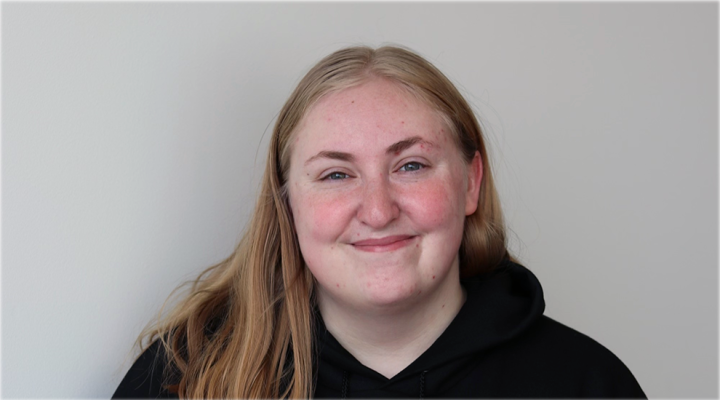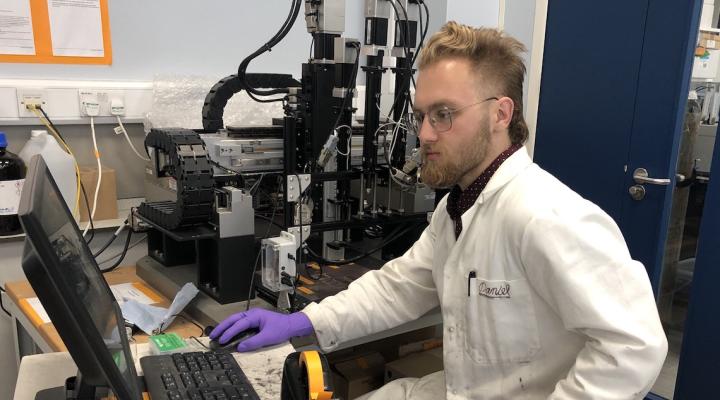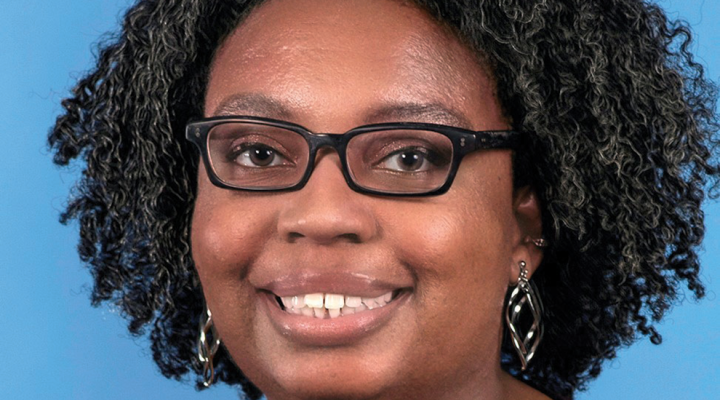Girls in the 2014 CURIE Academy explored the Internet of Things by designing, building, and testing one of several simple devices inspired by real-world applications.
From July 13–19, high school juniors and seniors chosen for their excellence in math and science spent their mornings at field sessions hosted by every school and department in the college. In the afternoons, the CURIE Scholars participated in three laboratory sessions with Christopher Batten, assistant professor of electrical and computer engineering.
Participants designed, built, and tested a simple Internet-of-Things device inspired by a real-world application. Increasingly, developers are connecting everyday physical objects augmented with inexpensive embedded controllers, sensors, and actuators to the Internet where they can collect information autonomously and interact with the real world.
“The Internet-of-Things has the potential to be a disruptive technology impacting many diverse aspects of our society including health care, energy, manufacturing, retail, commerce, and transportation,” Batten said. “By 2020 there will likely be tens of billions of autonomous devices connected to the Internet. Students studying computer engineering over the next five years will have a unique opportunity to shape how this proliferation of connected devices will change our society.”
In the first lab, scholars learned about computer engineering from the hardware perspective by incrementally building a simple calculator out of basic logic gates.
"This program introduced engineering in a way where it made it seem very fun and the TA's looked like they were in love with their fields!" wrote Wendy Arce, a junior from Los Angeles, in her evaluation.
In the second lab, scholars learned about computer engineering from the software perspective by incrementally building a mobile robot control application using the popular Arduino micro-controller.
"A job as an engineer would be good for me because I enjoy and excel at both math and science," wrote Ariana Soto, a junior from West Covina, Calif. "Being able to apply these skills this week have affirmed my enjoyment of engineering."
In the third lab, scholars put hardware and software together to create their first basic Internet-of-Things system: a "smart door" that includes an input device to send the door status to the cloud and an output device to poll the cloud and display the door status using a small light.
After the laboratory sessions, the students worked in small groups on a system in one of five themes: smart home, early disaster warning, wearable health monitoring, wildlife tracking, and smart electrical power grids. Projects included: a step counter that plays music when a goal is reached; a baby monitor that tracks temperature, heart rate, and motion; and an early flash flood detector that sends a text when the water rises.
CURIE Academy is a one-week residential program offered by Cornell Engineering’s Diversity Programs in Engineering to high school students chosen for their excellence in math and science. “The focus is on juniors and seniors who may not have had prior opportunities to explore engineering, but want to learn more about the many opportunities in engineering in an interactive atmosphere,” said Diversity Programs in Engineering Director Sara Xayarath Hernández.
Social events, panel discussions, and other out-of-classroom activities gave opportunities to network informally with Cornell faculty, staff, and students.




